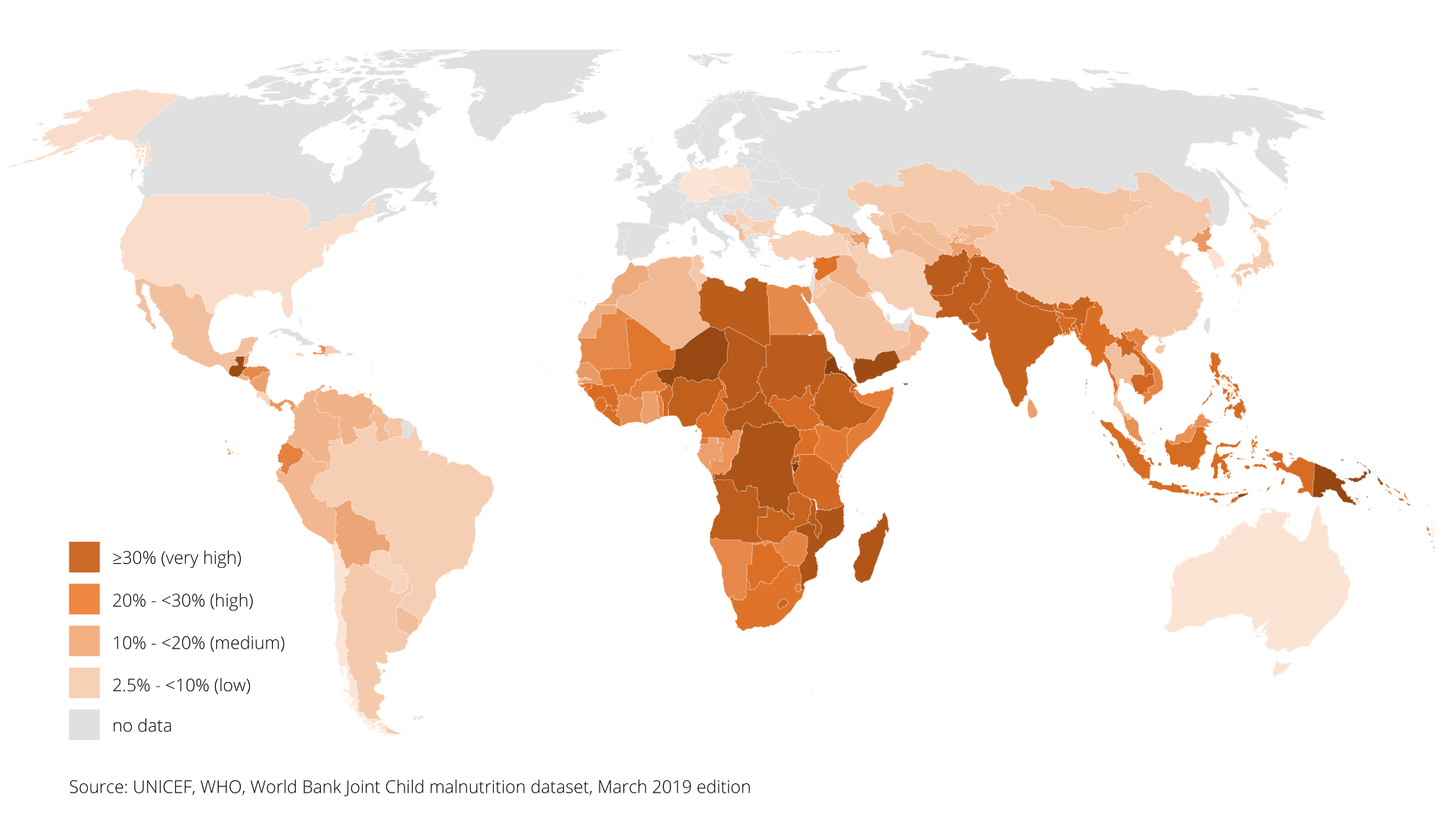WHY chronic malnutrition
What if we told you that our first 1,000 days determine the rest of our lives?
The first 1,000 days of a child’s life (through a women’s pregnancy and until the child’s second birthday) represent a critical period of growth and development. The rapid growth of their bodies and brains requires essential nutrients including protein, vitamins, and minerals.
Children who do not receive the nutrients they need during this key development stage suffer from chronic malnutrition. The consequences of chronic malnutrition – stunted growth, impaired brain development, and a weakened immune system - are largely irreversible, preventing affected children from reaching their full potential.
Today, 1 in 5 children worldwide are chronically malnourished. Compared with their peers, they will struggle to do as well in school and will on average earn 20% less income as adults. In addition to the human tragedy, chronic malnutrition is an enormous obstacle to countries’ economic development. In Africa, where chronic malnutrition affects 1 in every 3 children, the cost of undernutrition is estimated at up to 16% of GDP in some countries.
Despite affecting 149 million children worldwide, chronic malnutrition remains little known.
Prevalence of the disease
The consequences of chronic malnutrition on a child’s development are largely irreversible:
Chronic malnutrition negatively impacts the entire life of an affected person as well as the country’s economy:
How do we prevent the disease? Check out our investment priority themes.
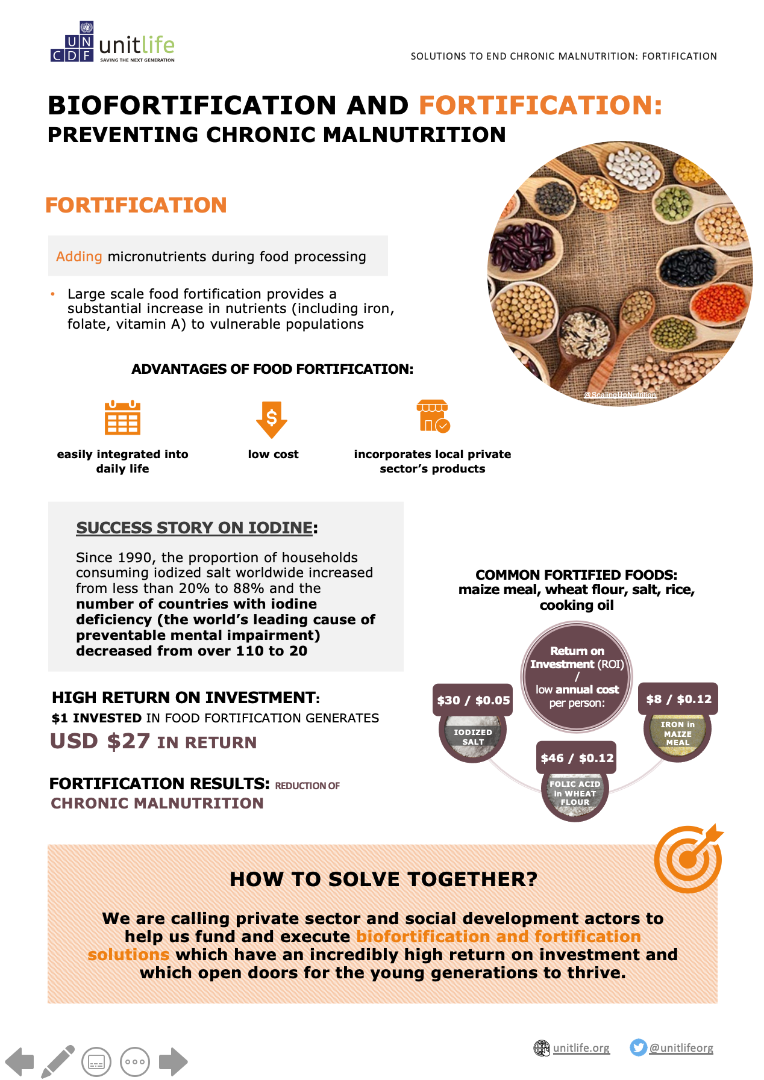 |
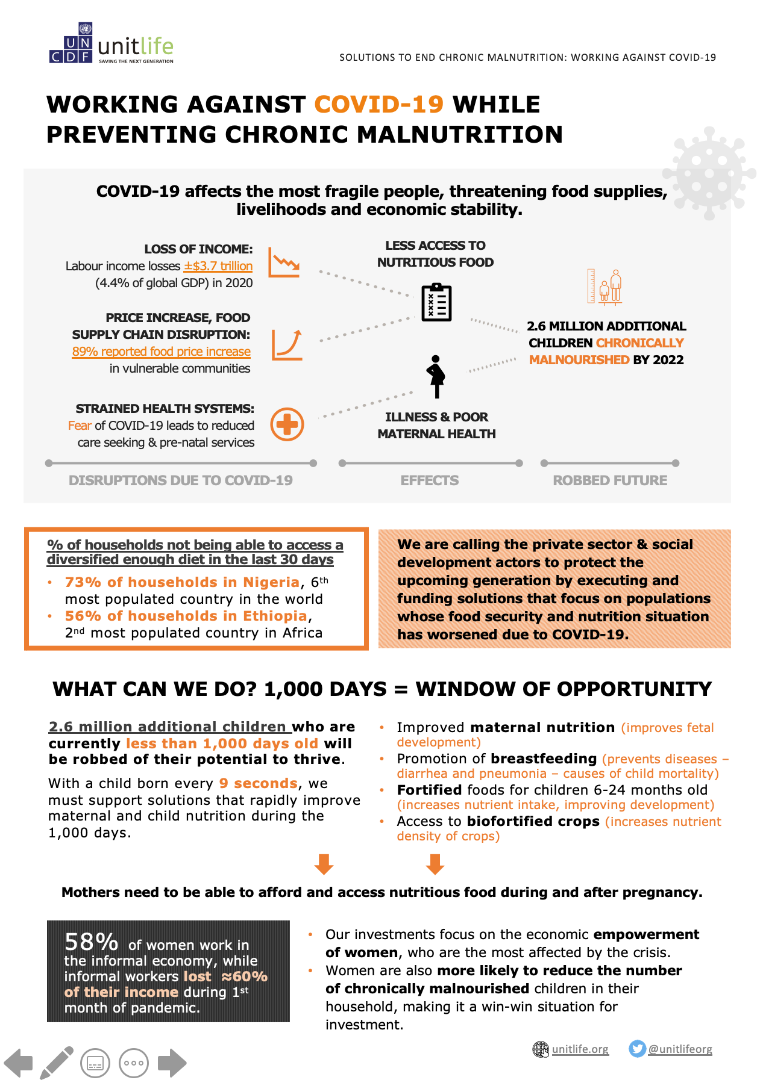 |
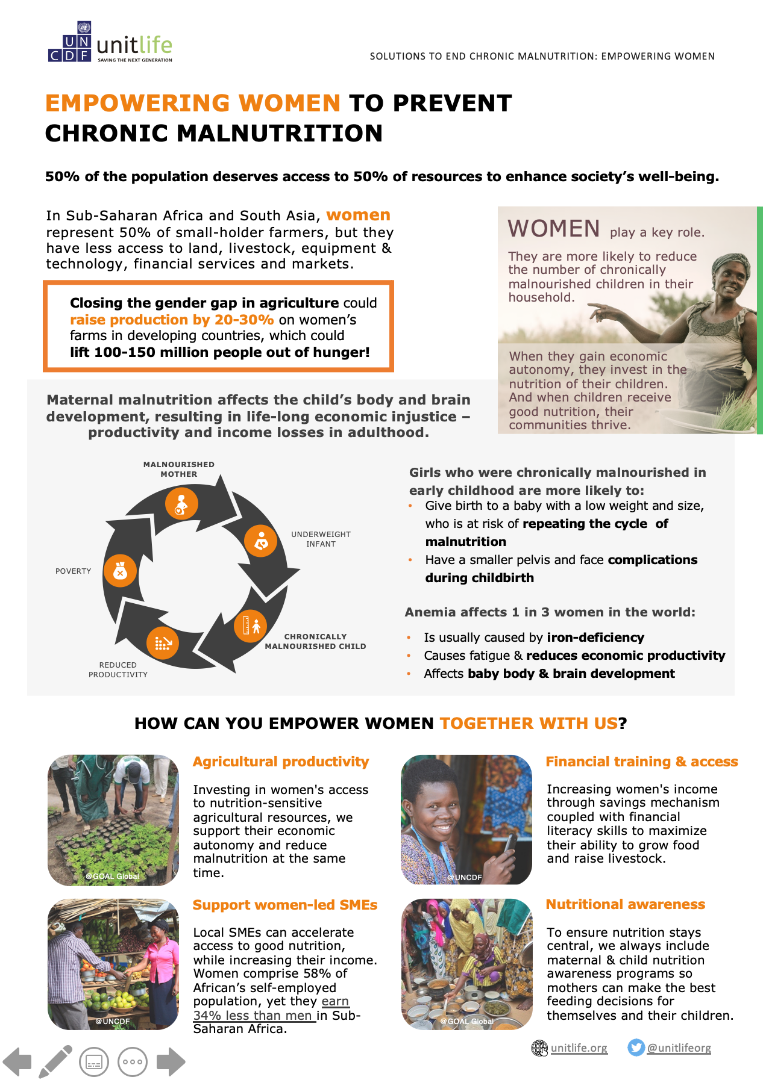 |
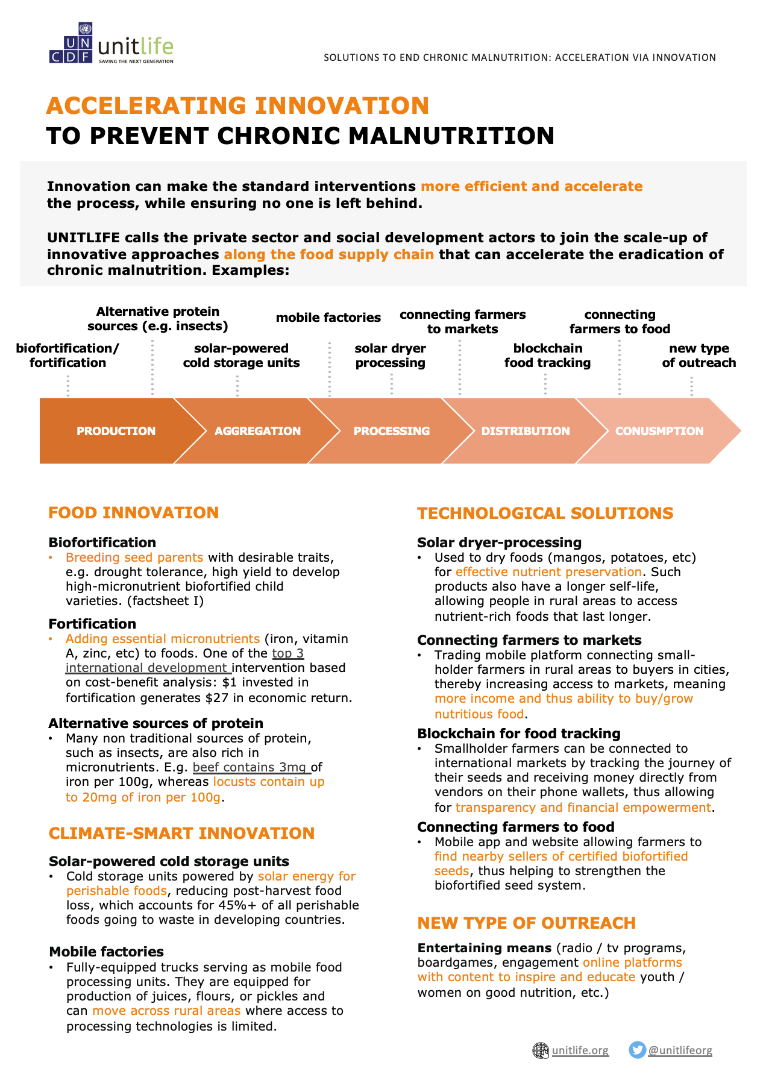 |
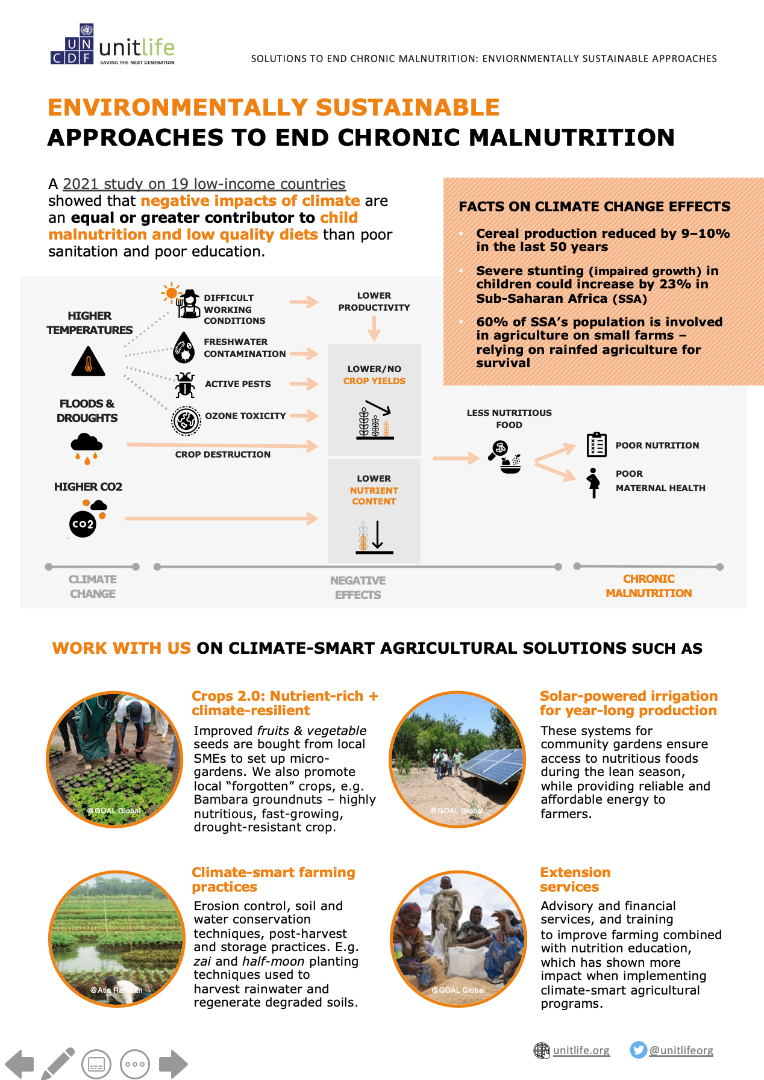 |
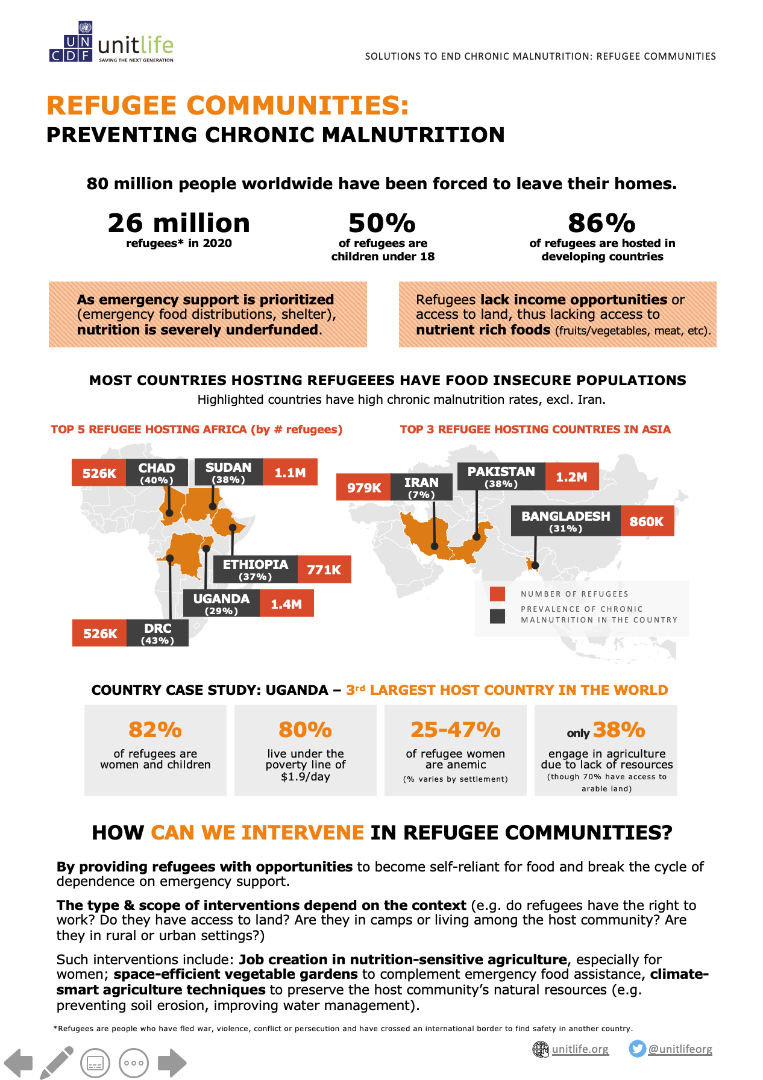 |
If you want to download a document containing all themes:
